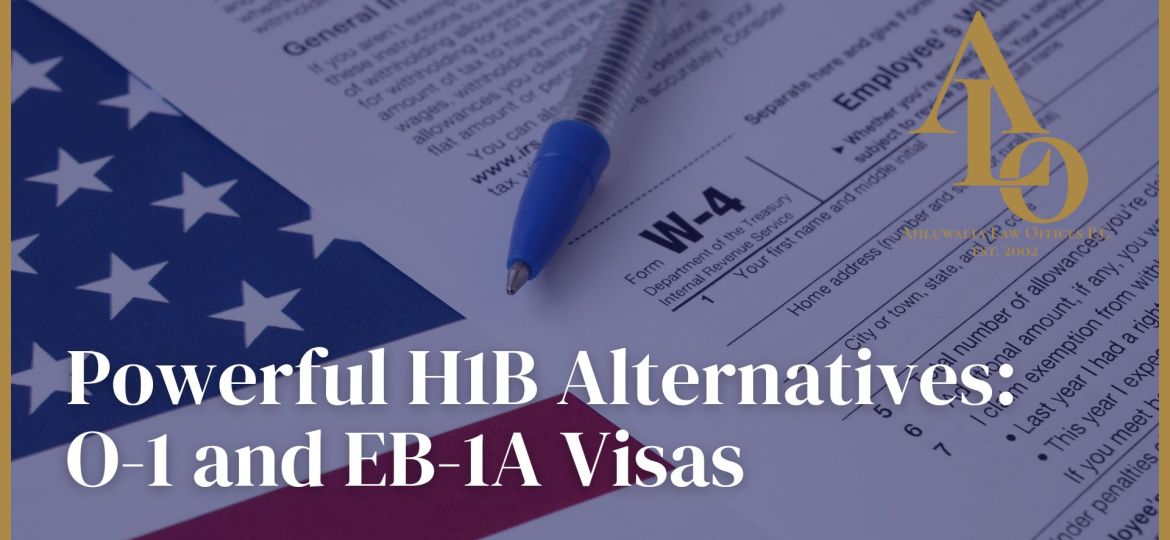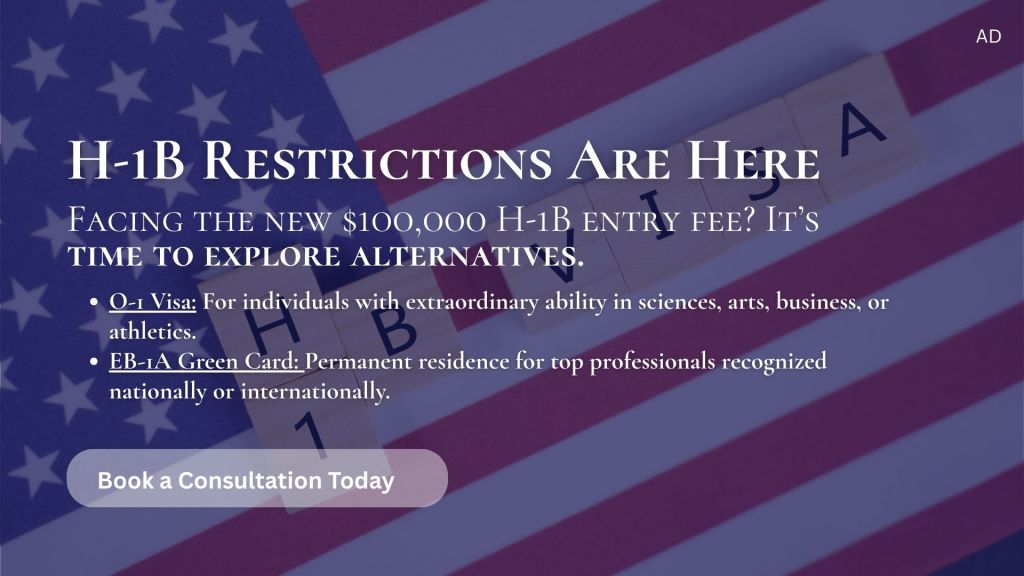
Recent presidential proclamations have introduced new restrictions on the H-1B visa program, including heightened fees and barriers to entry for temporary skilled workers. These changes have left many foreign nationals, current H-1B holders, and prospective applicants reconsidering their options for working and residing in the United States.
Fortunately, powerful alternatives exist for highly skilled professionals: the O-1 visa and the EB-1A immigrant visa. Both pathways reward extraordinary achievement and can provide a stronger, more secure route for individuals seeking to advance their careers in the U.S.
The O-1 Visa: For Extraordinary Ability and Achievement
The O-1 nonimmigrant visa is designed for individuals who can demonstrate extraordinary ability in the sciences, education, business, athletics, or the arts. It also covers those with extraordinary achievement in the motion picture or television industry.
According to U.S. Citizenship and Immigration Services (USCIS), “extraordinary ability” is proven by sustained national or international acclaim. Evidence may include major awards, publications, original contributions, high salary, or leading roles in distinguished organizations.
Key advantages of the O-1 visa include:
- Flexibility: Granted initially for the duration of a specific event or project, extendable in one-year increments.
- Recognition of talent: Prioritizes merit and achievement rather than an annual lottery.
- Dependent benefits: O-3 visas allow immediate family members to accompany the primary visa holder.
More from USCIS on the O-1 visa »
The EB-1A: Permanent Residency for the Best and Brightest
The EB-1A immigrant classification offers permanent residency (a green card) to individuals with extraordinary ability in the sciences, arts, education, business, or athletics. Unlike many other green card categories, the EB-1A does not require a labor certification or a permanent job offer—making it one of the most direct routes to permanent residence.
USCIS notes that applicants must show they are “one of the small percentage who have risen to the very top of the field of endeavor.” This can be proven through internationally recognized awards, scholarly contributions, authorship, or evidence of high-level performance.
Key advantages of the EB-1A include:
- Permanent residency: Direct path to a green card.
- No employer sponsorship required: Applicants may self-petition.
- Global recognition: Valued by U.S. institutions and employers seeking top talent.
More from USCIS on the EB-1A visa »
Choosing the Right Path
With the H-1B program facing growing restrictions, foreign nationals should carefully assess whether their qualifications align better with the O-1 or EB-1A categories. Both options are rooted in achievement and talent, offering more stability and prestige than an H-1B visa in today’s shifting immigration environment.
At Ahluwalia Law Offices, our team assists clients in evaluating eligibility, preparing strong evidence packages, and navigating USCIS standards for O-1 and EB-1A cases. If you are impacted by the latest H-1B entry restrictions, consider whether these extraordinary ability visas could provide a more secure future in the U.S.


